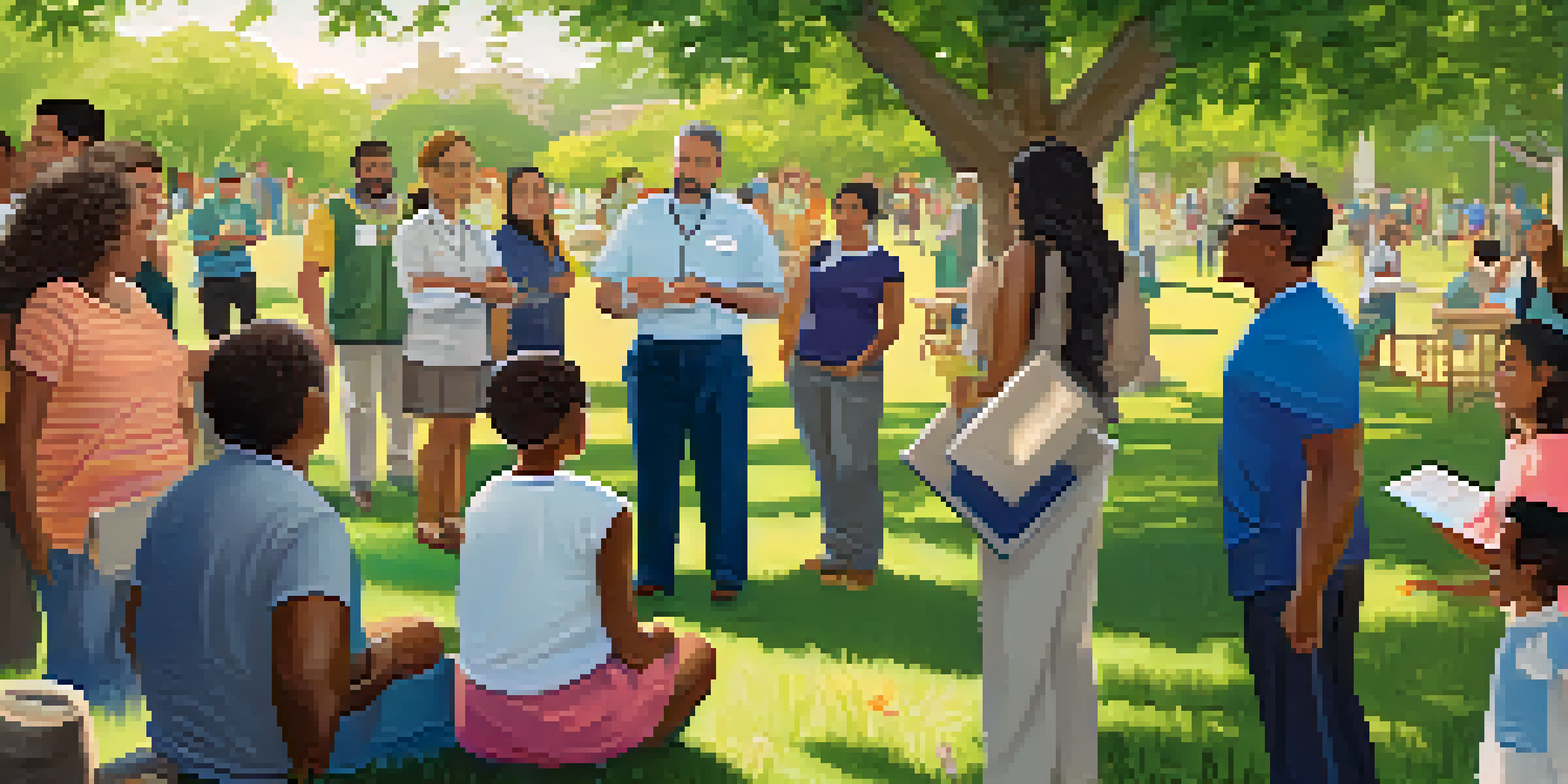Community Health Workers: Bridging Gaps in Public Health

What are Community Health Workers (CHWs)?
Community Health Workers, or CHWs, are frontline public health workers who play a crucial role in connecting underserved communities with health resources. They often come from the communities they serve, which allows them to build trust and foster relationships with individuals. By acting as a bridge between healthcare providers and the community, CHWs can effectively address health disparities and promote better health outcomes.
The greatest impact on health is not achieved through the doctor’s office, but through the community.
Typically, CHWs are trained to provide education, outreach, and support. They might assist in navigating healthcare systems, helping individuals understand their health conditions, and encouraging preventive care. This unique position enables them to identify specific health needs within their communities and advocate for necessary services.
Their work is not just about providing information; it’s about empowering individuals to take charge of their health. Through culturally relevant communication and personalized support, CHWs help improve health literacy, which is essential for making informed health decisions.
The Role of CHWs in Public Health
CHWs play a multifaceted role in public health, often serving as educators, advocates, and support systems within their communities. They conduct outreach programs that inform individuals about available health services, preventive measures, and healthy lifestyle choices. This proactive approach can lead to increased participation in health programs that might otherwise be overlooked.

Moreover, CHWs assist in identifying and addressing barriers to healthcare access, such as transportation issues, language barriers, or financial constraints. By being present in the community, they understand these challenges firsthand and can work towards solutions that make healthcare more accessible.
CHWs Bridge Health Gaps
Community Health Workers connect underserved populations to essential health resources, fostering trust and empowering individuals.
Their contributions extend to data collection and health surveillance as well. CHWs gather valuable information about community health trends, which can help public health officials tailor interventions and allocate resources more effectively.
Impact on Health Disparities
One of the most significant impacts of Community Health Workers is their ability to reduce health disparities. By focusing on marginalized populations, CHWs bring awareness to the unique health challenges faced by these groups. They help to ensure that everyone, regardless of their background, has access to the care and resources they need.
The best way to find yourself is to lose yourself in the service of others.
For example, in many low-income communities, chronic conditions such as diabetes or hypertension are prevalent but often go unmanaged. CHWs can provide education on disease management, encourage regular check-ups, and promote healthy behaviors that can significantly improve quality of life.
The presence of CHWs not only supports individual health but also fosters a sense of community resilience. When people feel supported and informed, they are more likely to engage in healthy behaviors and advocate for their health needs.
Training and Support for CHWs
To be effective, Community Health Workers require appropriate training and ongoing support. Training programs often cover a range of topics, including health education, communication skills, and cultural competence. This equips CHWs with the knowledge and tools they need to serve their communities effectively.
Additionally, mentorship and supervision are vital components of their development. Experienced healthcare professionals can provide guidance and support, helping CHWs navigate challenging situations and enhance their skills over time.
Focus on Preventive Care
CHWs emphasize preventive care, educating communities on healthy practices and facilitating access to screenings and vaccinations.
Investment in training not only benefits the CHWs but also improves overall community health outcomes. Well-trained CHWs are more confident and capable, leading to better service delivery and stronger relationships with community members.
CHWs and Preventive Care
One of the key areas where CHWs excel is in promoting preventive care. They educate community members about the importance of regular screenings, vaccinations, and healthy lifestyle choices. By emphasizing prevention, CHWs help to reduce the incidence of chronic diseases and promote long-term health.
For instance, a CHW might organize workshops on nutrition and physical activity, empowering individuals to make healthier choices. They can also facilitate access to preventive services by helping individuals schedule appointments for vaccinations or screenings.
This focus on preventive care not only improves individual health but also lessens the burden on healthcare systems. By catching health issues early, CHWs contribute to a reduction in emergency room visits and hospitalizations.
Collaborative Efforts with Healthcare Providers
Collaboration between Community Health Workers and healthcare providers is essential for maximizing their impact. By working together, CHWs and providers can ensure that community members receive comprehensive care that addresses both medical and social needs. This partnership is vital in creating a holistic approach to health.
For example, a healthcare provider may refer patients to a CHW for additional support in managing a chronic condition. This allows patients to receive personalized guidance while still benefiting from medical oversight. Such collaboration fosters a team-based approach to healthcare that can significantly improve outcomes.
Collaboration with Providers
Effective partnerships between CHWs and healthcare providers enhance comprehensive care by addressing both medical and social needs.
Moreover, feedback from CHWs can help healthcare providers understand the unique challenges faced by their patients. This insight can inform the development of more effective programs and services tailored to community needs.
The Future of Community Health Workers
The future of Community Health Workers looks promising, with increasing recognition of their vital role in public health. As healthcare systems evolve, there is a growing emphasis on social determinants of health, which highlights the importance of addressing the broader context of health beyond clinical care. CHWs are perfectly positioned to lead this charge.
With advancements in technology, CHWs can leverage digital tools to enhance their outreach efforts, improve communication, and access resources. Telehealth and mobile health applications can complement their work, making it easier for them to connect with community members.

As we move forward, supporting and expanding the role of CHWs will be crucial in building healthier communities. Their unique insights and connections empower communities to take charge of their health, ensuring that no one is left behind.